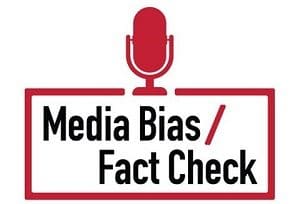
LEAST BIASED
These sources have minimal bias and use very few loaded words (wording that attempts to influence an audience by appeals to emotion or stereotypes). The reporting is factual and usually sourced. These are the most credible media sources. See all Least Biased Sources.
- Overall, we rate Eat This, Not That Least Biased based on minimal political editorializing. We also rate them Mostly Factual in reporting rather than High due to a false claim and infrequent promotion of pseudoscience.
Detailed Report
Bias Rating: LEAST BIASED
Factual Reporting: MOSTLY FACTUAL
Country: USA
Press Freedom Rank: MOSTLY FREE
Media Type: Website
Traffic/Popularity: High Traffic
MBFC Credibility Rating: HIGH CREDIBILITY
History
Founded in 1997 by David Zinczenko, Eat This, Not That is a website and quarterly magazine that publishes information on food choices and healthy eating. According to their about page, “We want to empower you to make healthier food choices every day through expert- and research-backed tips, shopping lists, and nutrition guides. Our content can help you when you’re shopping at the grocery store, dining out, eating on-ton the cooking at home, and more—so you can be healthy, fit, and feel your best.”
Read our profile on the United States government and media.
Funded by / Ownership
Galvanized Media owns Eat This, Not That. Commissions on products, advertising, and sales of books generate revenue.
Analysis / Bias
Eat This, Not That provides what they consider healthy food options such as avoiding high fat, high sodium, high sugar foods, etc. While not everyone will agree on their choices, the American Dietetic Association says, “There are several healthful options for the restaurants. These are realistic changes people can make to save hundreds of calories.”
Articles and headlines often use sensational headlines to grab attention, such as this The #1 Worst Cereal for Weight Loss, Dietitian Says. Editorially, stories offer opinions on food, but not on politics, and are adequately sourced from credible sources like the American Heart Association and peer-reviewed journals.
Our science review indicates that they hold pro-science viewpoints on GMOs and do not promote miracle cures through diet. For example, in the article titled Slash Your Cancer Risk in Seconds, Say Cancer Experts, they offer reasonable advice such as exercising, eating less red meat, drinking less alcohol, and eating more fruits and vegetables. They do not state any of these recommendations will prevent cancer. Although they are generally Pro-Science, they have made a false claim and promoted pseudoscience such as this The Best Coffee Creamer to Match Your Zodiac Sign, According to an Astrologer. Astrology is considered pseudoscience.
Failed Fact Checks
Overall, we rate Eat This, Not That Least Biased based on minimal political editorializing. We also rate them Mostly Factual in reporting rather than High due to a false claim and infrequent promotion of pseudoscience. (D. Van Zandt 12/26/2021) Updated (04/17/2022)
Source: https://www.eatthis.com/
Last Updated on May 24, 2023 by Media Bias Fact Check
Do you appreciate our work? Please consider one of the following ways to sustain us.
or
Left vs. Right Bias: How we rate the bias of media sources

